




Hard water can have a significant impact on the performance and lifespan of your washing machine. Hard water contains high levels of minerals, such as calcium and magnesium, which can cause several issues when it comes to washing clothes.
One of the most common problems caused by hard water is the formation of limescale. When hard water is heated, the minerals in the water form a solid residue that can build up in your washing machine’s pipes, valves, and heating elements. This limescale buildup can restrict water flow, reduce the efficiency of your machine, and even lead to mechanical failure.
Another issue with hard water is its ability to leave behind mineral deposits on your clothes. These deposits can make your clothes feel stiff, scratchy, and less comfortable to wear. They can also cause colors to fade and make fabrics look dull. In addition, the minerals in hard water can react with detergents, reducing their effectiveness and making it harder to get rid of stains and odors.
To prevent the negative effects of hard water on your washing machine, it’s important to take proactive measures. Regular descaling of your machine can help remove limescale buildup and improve its performance. Using a water softener or installing a whole house water filtration system can also reduce the mineral content in the water, protecting your machine and improving the quality of your laundry.
The Impact of Hard Water on Washing Machines
Hard water, which is water that contains high levels of minerals such as calcium and magnesium, can have a significant impact on the performance and longevity of washing machines. Here are several ways in which hard water affects washing machines:
1. Mineral Buildup
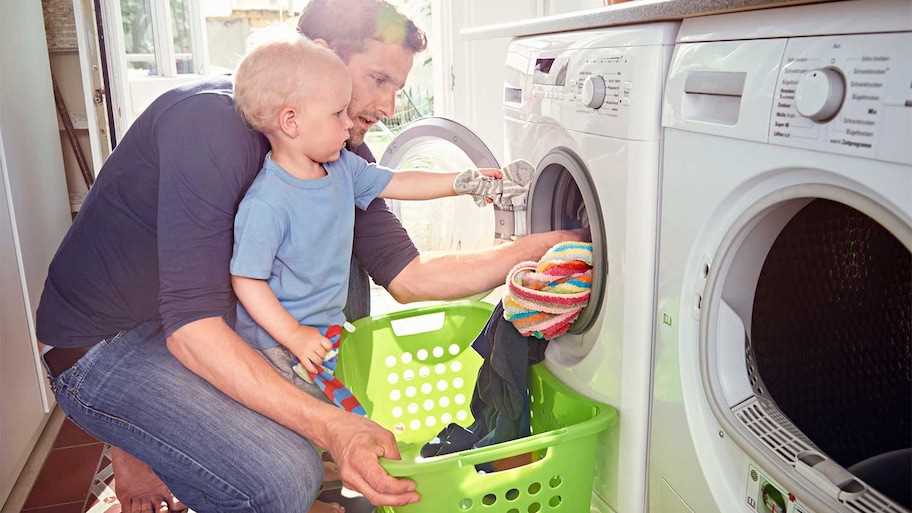
When hard water is used in washing machines, minerals in the water can build up over time. This mineral buildup can clog the internal components of the machine, such as the valves, pipes, and filters. As a result, the machine may not be able to function properly, leading to reduced water flow and decreased cleaning efficiency.
2. Residue on Clothes
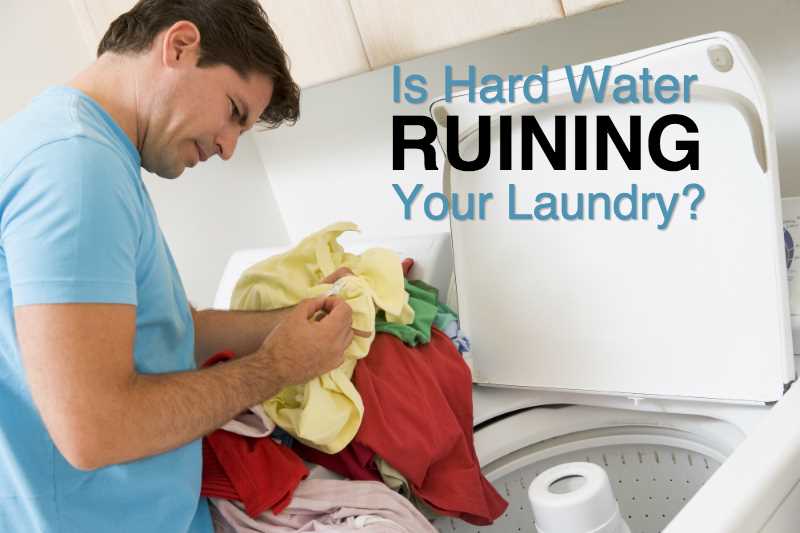
Hard water contains minerals that can react with soap and detergent, forming a sticky residue. This residue can adhere to clothes during the washing process, making them feel stiff and look dull. Additionally, the residue can accumulate in the fabric over time, causing it to become less absorbent and more prone to staining.
3. Reduced Performance
The presence of minerals in hard water can also affect the performance of washing machines. The mineral deposits can interfere with the heating elements of the machine, reducing their efficiency and increasing the time and energy required to heat the water. This can result in longer washing cycles and higher electricity or gas bills.
4. Decreased Lifespan
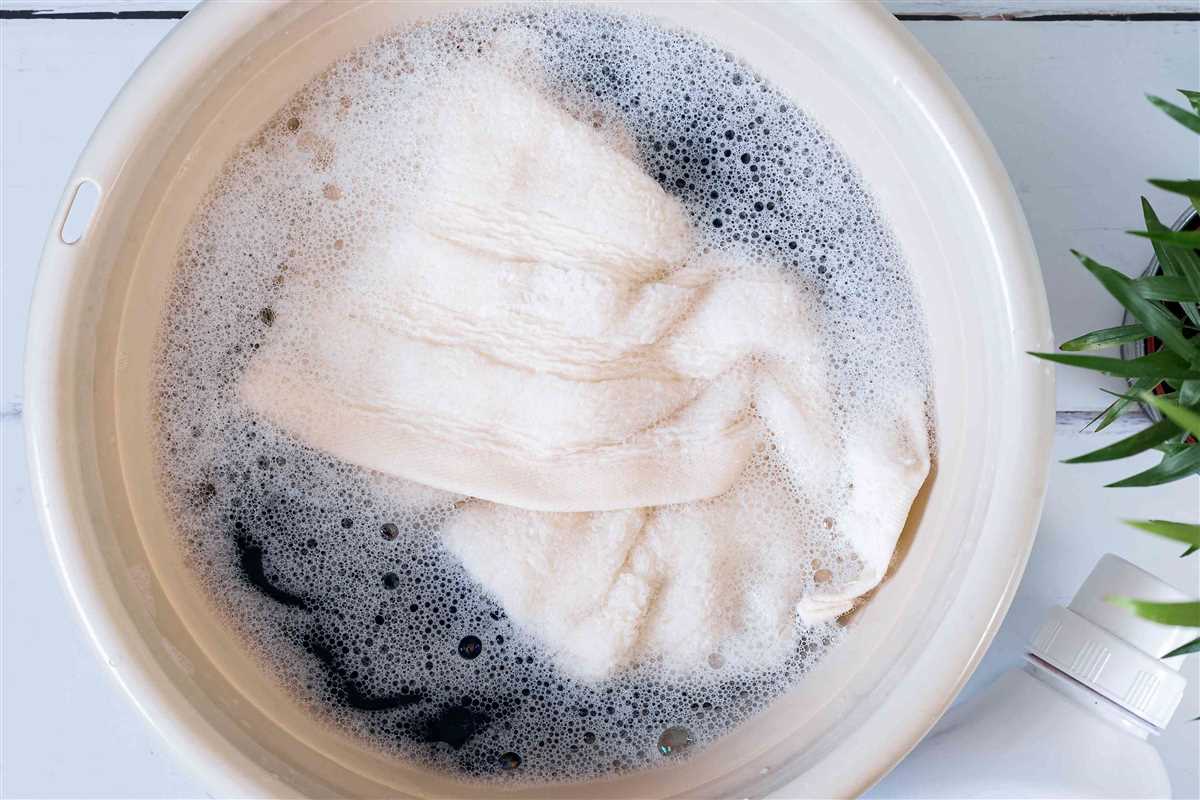
Over time, the mineral buildup caused by hard water can cause mechanical parts of the washing machine to deteriorate. The clogged valves, pipes, and filters may become less effective or even fail completely. This can lead to costly repairs or the need to replace the entire machine before its expected lifespan.
5. Maintenance and Cleaning
Dealing with hard water in washing machines requires regular maintenance and cleaning. Cleaning the machine’s internal components, such as the detergent drawer and drum, can help remove mineral deposits and prevent clogs. Using descaling agents or additives specifically designed for hard water can also help minimize the negative effects.
Conclusion
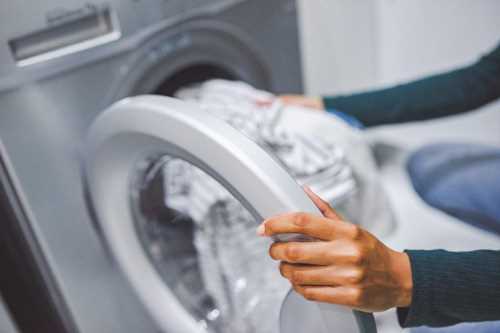
In conclusion, hard water can have a detrimental impact on washing machines. The mineral buildup can clog internal components, leave residue on clothes, reduce performance, decrease the lifespan of the machine, and require additional maintenance and cleaning. To mitigate these effects, it is important to address the issue of hard water and implement preventive measures to protect your washing machine.
Understanding the Effects of Hard Water
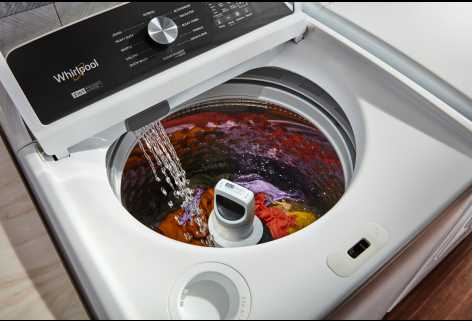
Hard water refers to water that contains high levels of minerals, such as calcium and magnesium. While it may not be harmful for consumption, hard water can have negative effects on various appliances and household items, including washing machines.
1. Limescale buildup:
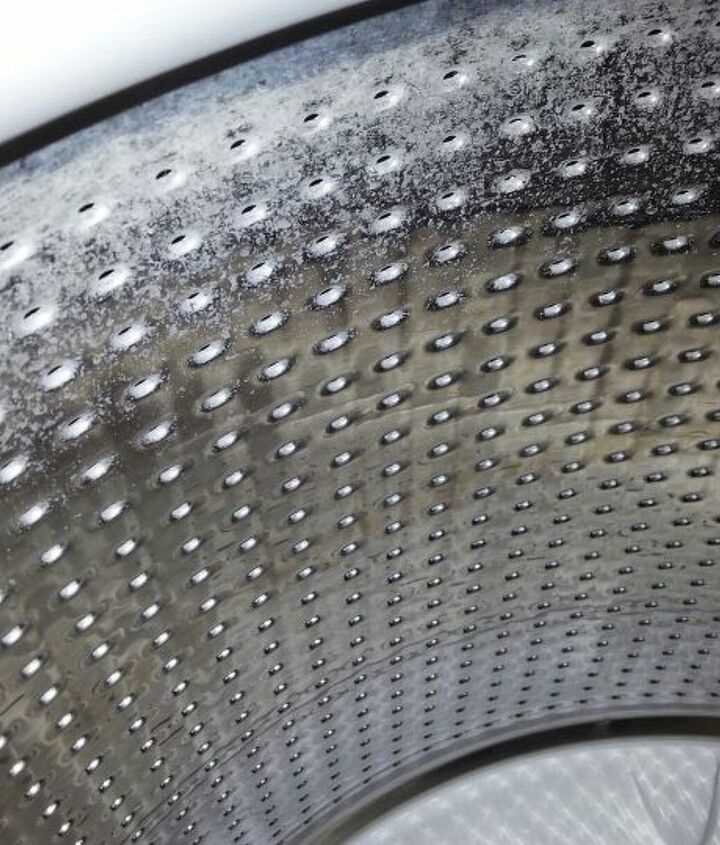
One of the main effects of hard water on washing machines is the buildup of limescale. Limescale is formed when the minerals in hard water mix with soap or detergent, creating a hard, chalky residue. Over time, this limescale can accumulate inside the washing machine’s pipes, valves, and drum, reducing water flow and affecting its performance.
2. Reduced efficiency:
Due to the limescale buildup, hard water can reduce the efficiency of a washing machine. The limescale can prevent the detergent from properly dissolving, resulting in clothes that are not thoroughly cleaned. Additionally, the reduced water flow caused by limescale can prolong the washing cycles and increase water and energy consumption.
3. Stains and discoloration:
When washing clothes with hard water, you may notice that they come out with stains or discoloration. The mineral deposits in hard water can leave behind residue on fabrics, making them appear dull, discolored, or even yellowed. This can be especially problematic for white or light-colored garments.
4. Wear and tear:
The limescale buildup can also lead to wear and tear on a washing machine. The deposits can cause increased friction and strain on the internal components, such as the drum, motor, and valves. This can result in a shorter lifespan for the machine and potentially costly repairs or replacement.
5. Maintenance and cleaning:
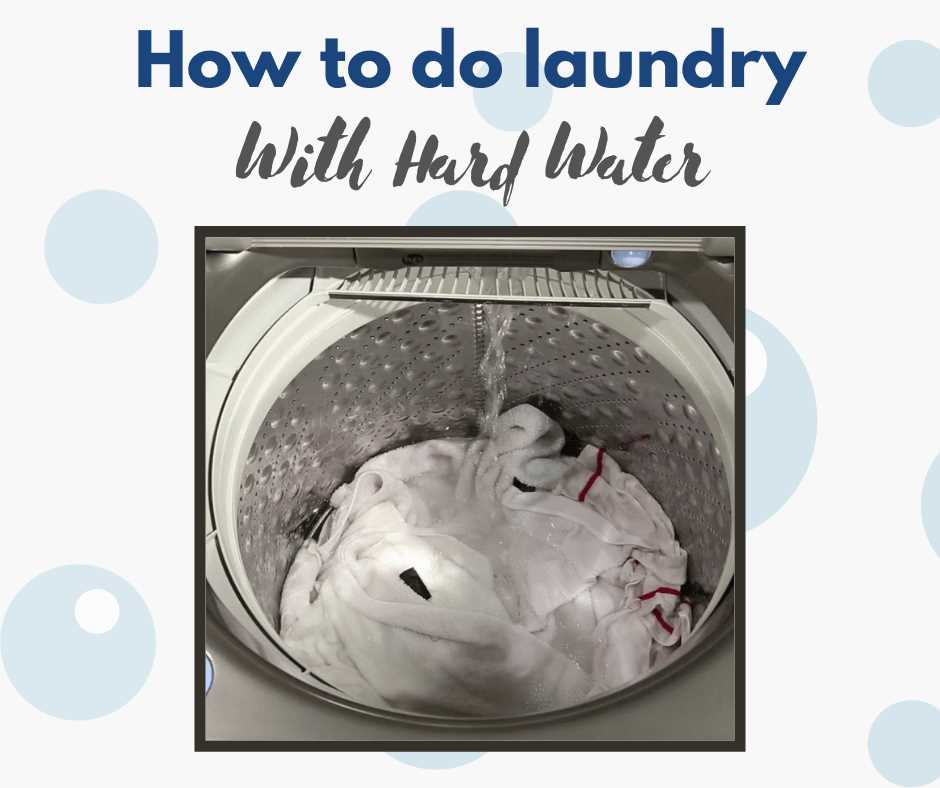
Dealing with hard water in a washing machine requires regular maintenance and cleaning. It may be necessary to descale the machine periodically to remove the limescale buildup and ensure optimal performance. This can be time-consuming and may require the use of specialized cleaning products.
| Effect | Description |
|---|---|
| Limescale buildup | Formation of hard, chalky residue in the machine’s pipes, valves, and drum |
| Reduced efficiency | Difficulty in dissolving detergent and prolonged washing cycles due to limescale |
| Stains and discoloration | Residue left on fabrics, leading to dullness, discoloration, or yellowing |
| Wear and tear | Increased friction and strain on internal components, potentially shortening the machine’s lifespan |
| Maintenance and cleaning | Regular descaling and use of specialized cleaning products |
Common Problems Caused by Hard Water in Washing Machines

- Build-up of mineral deposits: One common problem caused by hard water in washing machines is the build-up of mineral deposits. When hard water is used for washing, the minerals it contains can start to accumulate inside the machine over time. This can lead to clogged pipes, reduced water flow, and decreased washing machine performance. Regular maintenance and descaling of the machine can help prevent this issue.
- Stained and discolored clothes: Another issue that hard water can cause in washing machines is stained and discolored clothes. The minerals in hard water can react with laundry detergent and form insoluble compounds that can leave stains on clothes. These stains are often difficult to remove and can make the clothes look dull and faded. Using a water softener or adding a water conditioner to the wash cycle can help mitigate this problem.
- Reduced cleaning power: Hard water can also reduce the cleaning power of laundry detergent. The minerals in hard water can react with the detergent and form a sticky residue called soap scum. This soap scum can build up on clothes and in the washing machine, making it harder for the detergent to effectively clean the clothes. Using a water softener or increasing the amount of detergent used can help overcome this issue.
- Shortened lifespan of the washing machine: The mineral deposits and soap scum caused by hard water can also affect the lifespan of the washing machine. Accumulated mineral deposits can damage the internal components of the machine, such as the heating element, pump, and valves, leading to breakdowns and expensive repairs. Regular cleaning and maintenance of the machine can help extend its lifespan and reduce the risk of damage caused by hard water.
- Increased energy consumption: Hard water can also lead to increased energy consumption in washing machines. The mineral deposits and soap scum can reduce the efficiency of the machine, requiring it to work harder and use more electricity or gas to complete a wash cycle. This can result in higher energy bills and a wasteful use of resources. Regular descaling and maintenance can help improve the efficiency of the machine and reduce energy consumption.
Steps to Prevent and Minimize Hard Water Damage
Hard water can cause damage to your washing machine over time. However, there are steps you can take to prevent and minimize this damage:
- Install a water softener: A water softener is a device that removes minerals, such as calcium and magnesium, from the water supply. By installing a water softener, you can effectively reduce the hardness of the water and protect your washing machine from damage.
- Use a descaling agent: Regularly using a descaling agent can help remove mineral buildup from your washing machine. Follow the instructions on the descaling agent and run a cleaning cycle without any clothes to remove any residue or buildup.
- Clean the detergent dispenser: Hard water can cause a buildup of detergent residue in the dispenser. Regularly remove and clean the detergent dispenser to prevent clogs and ensure proper detergent flow.
- Use the right amount of detergent: Using too much detergent can lead to excessive suds, which can be more difficult to rinse out in hard water. Follow the manufacturer’s instructions for the correct amount of detergent to use based on the water hardness in your area.
- Inspect and clean the inlet hoses: Hard water can cause mineral deposits to accumulate in the inlet hoses, reducing water flow and potentially causing leaks. Regularly inspect and clean the inlet hoses to prevent blockages and maintain proper water flow.
- Wipe dry after each use: After each use, wipe the inside of the washing machine drum and door to remove any excess moisture. This can help prevent mineral buildup in the drum and reduce the chance of mold or mildew growth.
By following these steps, you can help prevent and minimize hard water damage to your washing machine, ensuring its longevity and efficiency.
The Importance of Regular Maintenance and Cleaning
Regular maintenance and cleaning are crucial for ensuring the optimal performance and longevity of your washing machine, especially when dealing with hard water. Here are several reasons why regular maintenance and cleaning are important:
- Preventing Build-up of Mineral Deposits: Hard water contains high levels of minerals such as calcium and magnesium. Over time, these minerals can build up inside the washing machine’s internal components, including pipes, valves, and heating elements. Regular cleaning helps prevent the accumulation of mineral deposits, which can lead to reduced efficiency, decreased water flow, and even system failure.
- Enhancing Cleaning Effectiveness: The presence of mineral deposits in a washing machine can interfere with the cleaning process. These deposits can stick to clothes, reducing the effectiveness of detergent and leaving behind residue. By regularly cleaning your washing machine, you can ensure that it functions at its best, providing cleaner and fresher laundry results.
- Preventing Malfunctions and Breakdowns: A washing machine that is not properly maintained can experience various issues, such as clogged pipes, valve problems, or even motor failure. Regular maintenance can help identify these issues early on and prevent more serious problems from occurring, saving you from costly repairs or the need for a new machine.
- Improving Energy Efficiency: When mineral deposits accumulate in the heating element or other parts of the washing machine, it can reduce the unit’s energy efficiency. The machine has to work harder to heat the water or perform its functions, leading to higher energy consumption. Regular cleaning can help maintain the machine’s efficiency, resulting in lower energy bills and reduced environmental impact.
In order to maintain and clean your washing machine effectively, follow the manufacturer’s guidelines and tips. This may include using descaling agents or vinegar to remove mineral deposits, wiping down the drum and seals regularly, and running cleaning cycles using specialized washing machine cleaners. Additionally, consider installing a water softener or using water softening solutions to minimize the impact of hard water on your washing machine.
By prioritizing regular maintenance and cleaning, you can prolong the life of your washing machine and ensure that it continues to deliver optimal performance, even in areas with hard water.
Choosing the Right Detergent for Hard Water Areas
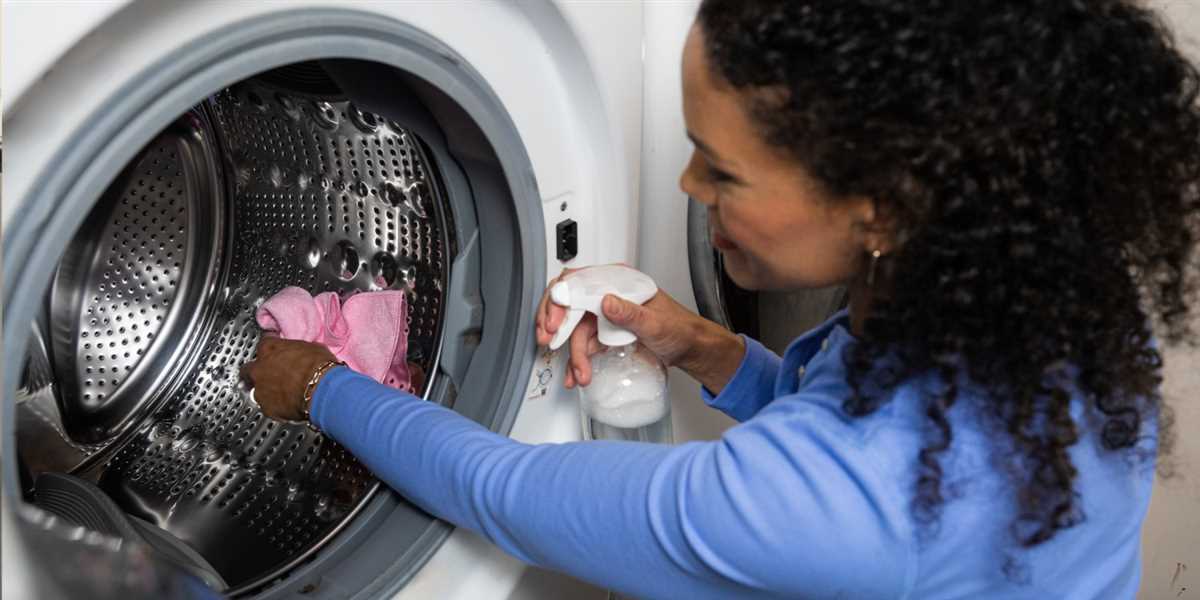
When living in an area with hard water, it is essential to choose the right detergent for your washing machine. Hard water contains minerals such as calcium and magnesium, which can create several issues when washing clothes. These minerals can combine with the soap and form a residue known as soap scum, which can build up on your clothes, washing machine, and plumbing system. To prevent these issues, follow these tips when selecting a detergent for hard water areas:
1. Look for Hard Water Formulas
When shopping for detergent, check the label for formulas specifically designed for hard water areas. These detergents are formulated to work more effectively in the presence of minerals and can help prevent soap scum buildup. Look for phrases such as “hard water formula” or “removes hard water stains” on the packaging.
2. Consider Liquid Detergent
Liquid detergents tend to be more effective in hard water areas compared to powdered detergents. This is because liquid detergents contain water-softening agents that can help counteract the effects of hard water minerals. Additionally, liquid detergents are less likely to leave residue on clothes or in the washing machine.
3. Use the Recommended Amount
Follow the manufacturer’s instructions regarding the recommended amount of detergent to use. Using too little detergent may not be effective in cleaning your clothes thoroughly, while using too much can contribute to soap scum buildup. Using the correct amount will help optimize the detergent’s performance without wasting product.
4. Consider Adding a Water Softener
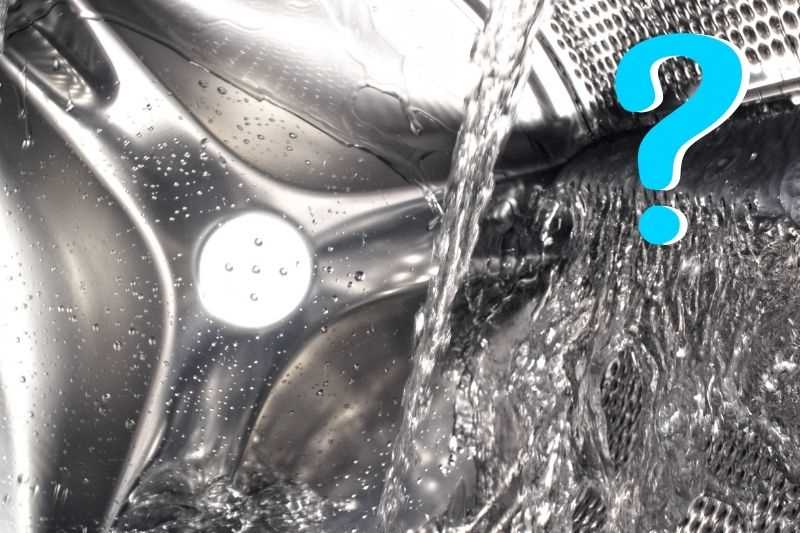
Using a water softener in conjunction with your detergent can further improve the results when washing clothes in hard water areas. Water softeners work by removing the minerals that cause water hardness, ensuring that the detergent can work more efficiently. Consult with a professional or look for water softener products that are specifically designed for washing machines.
5. Regularly Clean Your Washing Machine
In addition to choosing the right detergent, it is important to regularly clean your washing machine to prevent the buildup of soap scum and mineral deposits. Follow the manufacturer’s instructions for cleaning the washing machine or use a descaling product specifically designed for removing mineral buildup.
Conclusion
Choosing the right detergent for hard water areas is crucial in maintaining the efficiency and longevity of your washing machine. By considering formulas designed for hard water, opting for liquid detergents, using the recommended amount, considering water softeners, and regular cleaning, you can ensure that your clothes are clean and your machine stays in optimal condition.
FAQ
How does hard water affect the washing machine?
Hard water contains high levels of minerals like calcium and magnesium, which can build up in your washing machine over time. This buildup can lead to clogged pipes, reduced water flow, and decreased efficiency of your machine. It can also leave behind mineral deposits on your clothes, making them feel stiff and look dull.
Can hard water damage the heating element of a washing machine?
Yes, hard water can damage the heating element of a washing machine. The minerals in hard water can form a layer of scale on the heating element, which can reduce its efficiency and eventually cause it to fail. This can lead to increased energy consumption, longer wash cycles, and the need for costly repairs or replacement of the heating element.
Are there any signs that my washing machine is being affected by hard water?
Yes, there are several signs that your washing machine is being affected by hard water. These include reduced water pressure, longer wash cycles, clothes that feel stiff or look dingy after washing, and a decrease in the overall performance of your machine. If you notice any of these signs, it may be a good idea to test your water hardness and consider installing a water softener to protect your washing machine.
How can I prevent or minimize the effects of hard water on my washing machine?
There are several steps you can take to prevent or minimize the effects of hard water on your washing machine. One option is to install a water softener, which will remove the minerals from your water before it enters the machine. Regularly cleaning and descaling your machine can also help remove any built-up mineral deposits. Using a laundry detergent specifically designed for hard water can also improve the performance of your machine and help prevent mineral buildup on your clothes.











